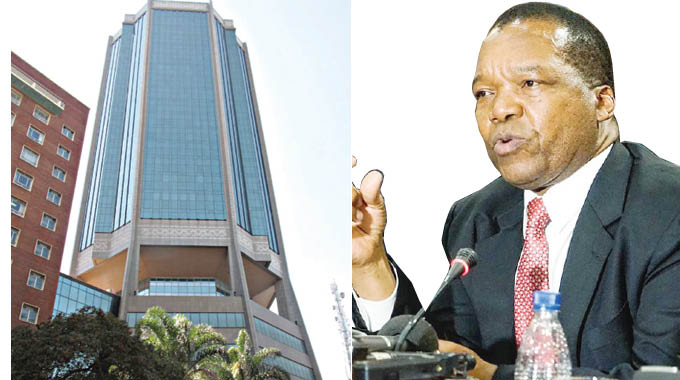New notes and coins out today

Golden Sibanda, Harare Bureau
Commercial banks collected $30 million of new notes and coins yesterday from the Reserve Bank of Zimbabwe and account holders should be able to start accessing their $300 weekly cash withdrawal rations from most banks starting today.
With the weekly cash withdrawal limit set at $300, at least 100 000 account holders should be able to withdraw cash this week, unless there is another injection from the Reserve Bank of Zimbabwe.
As bank vans started congregating at the RBZ to collect the new $2 and $5 notes and the new $2 bond coins, RBZ Governor Dr John Mangudya said measures had been put in place to counter the channelling of cash from banks to the black market and the locking up of the new cash into the informal sector.
He did not go into detail, but the withdrawal limits, the small change-denominations, monitoring to ensure businesses bank cash and general checking are all likely to be part of that process.
Dr Mangudya said he expected all financial institutions to start dispensing the new notes and coins today.
While withdrawal limits remain at a maximum of $300 a week, the authorities intend to review them when the situation improves in line with the thrust of restoring normalcy in the economy.
Banks are also expected to start feeding money into automated teller machines (ATMs) soon.
Dr Mangudya said the RBZ will closely monitor the movement of cash from banks to depositors to prevent the channelling of money to illegal cash dealers.
These have been selling notes and coins to desperate people at premiums of up to 50 percent.
Most of the premiums are paid by people needing kombi fares as other purchases are normally only cheaper for cash if no premiums are paid.
“Money moves from formal to informal sector; it gets trapped there,” said Dr Mangudya. “So, it means we need to make sure that the economy is formalised. We need to improve production to grow the circle of the formal sector. We need to address the structural challenges.”
On enforcement of legal instruments to preserve cash in the formal system, Dr Mangudya said: “It’s a must; our teams will be on the ground to ensure that compliance is done. We also need to ensure that shops that receive cash bank it in line with the Bank Use Promotion Act. Big outlets will be monitored.”
Dr Mangudya said reports that the RBZ had not released cash to banks yesterday were incorrect.
“It’s not true that there is no money (released to the market). The banks are collecting the money, so today (Monday) is the day for collection of the money.
“Those ones that were able to be served in the morning should be able to give their customers.”
His remarks followed long queues of seemingly frustrated depositors at most banking halls.
The RBZ chief said the cash supply will keep improving in the next few days as monetary authorities continue to drip-feed the market.
The introduction of new notes and coins is expected to increase the amount of cash in circulation from about $855 million to almost $1,9 billion.
Dr Mangudya has said the RBZ aims to increase the amount of cash in circulation to 10 percent of total money supply, which is close to the standard global thresholds.
Bankers Association of Zimbabwe (BAZ) vice president Mr Ralph Watungwa confirmed that banks started receiving cash from the RBZ yesterday.
“I can confirm that the new notes are being taken from the central bank and normal processes for takeover of the notes are underway,” he said.
“Some banks have already collected the notes while others are still in the process. The public was expecting to hold the cash today, but it’s a process. As BAZ we are confirming that the banks will start dispensing the new notes tomorrow (today).”
A lot of arbitrage has been in progress for some months.
Yesterday, there was still around a 35 percent premium on notes and coins sold for mobile money and foreign currency dealers were giving a similar discount on US dollars bought for cash.
Prices of many goods at the tuckshops and street vendors level are also around a third lower for cash.
Many informal traders then sell the cash they get as they buy their goods in the formal sector for digital money.
It is expected that as more cash circulates, these arbitrage gaps will diminish.
Premiums for cash payouts should fall, the gap between the cash and mobile money price of a US dollar banknote on the black market should narrow and the prices charged by informal traders for cash should start approaching the prices charged by formal traders regardless of the payment system.










Comments